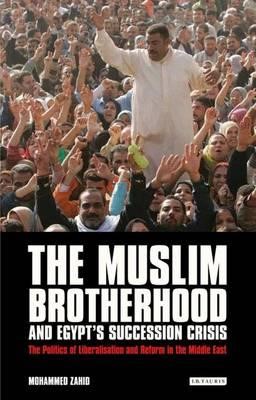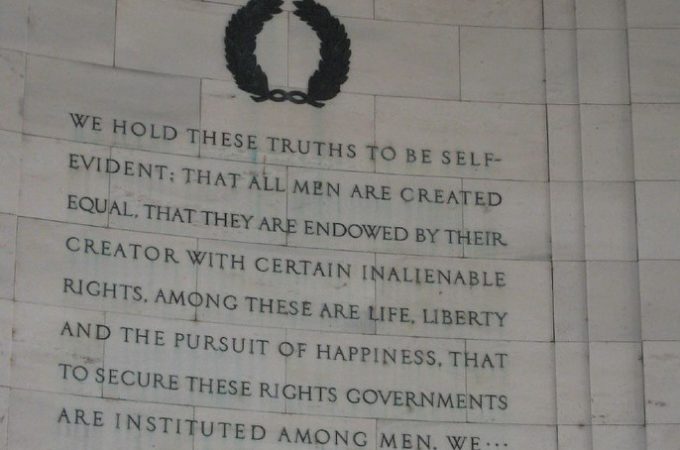Pluralism is grounded in the Judeo-Christian worldview
“When Muslims are in the minority, they complain about being oppressed. But the minute they become the majority, they become real oppressors because of the inherent intolerance of their culture.”
So writes Ed Straker in American Thinker. He is describing one of the greatest challenges in the West, i.e. political Islam, AKA Islamism.
What Straker says about Islamism can also be said about fundamentalist atheism. Atheists want freedom of speech until they achieve power. Then they want freedom from religion and seek to stifle free speech. We are witnessing this phenomenon at every turn in North American and European life today.
Free elections one time
In the West, Islamists will use the culture and structure of a free society to end the culture and structure of freedom.
We have seen this argument made in North Africa and the Middle East. In secular authoritarian countries such as Mubarak’s Egypt and Assad’s Syria, militant Islamists want free elections long enough to get a political foothold. But of course they actually despise democracy. Once they have replaced a secular dictator with a religious dictator, they forbid free elections. The Muslim Brotherhood in Egypt is one example of this at play.
Political Islam hates Judeo-Christian theism because it is the foundation of free and pluralistic societies.
Pluralism
It is important to recognize that social and political pluralism rests on the non-pluralistic foundation of Judeo-Christian Theism. In other words, because of Judeo-Christian influence, people are free to have their own ideas, speak their own minds, and challenge other people’s ideas. It is the Judeo-Christian worldview that launched freedom of religion, freedom to assemble, freedom of the press, et al.
The monotheistic faiths of Judaism and Christianity recognize the existence of an infinite, personal God who created the universe with a moral and metaphysical framework.
Jesus affirms the absolute nature of his claims when he says, “I am the way, and the truth, and the life. No one comes to the Father except through me” (John 14:6). The corollary is that those who live within the framework of Christ’s teaching will be free (John 8:31-32).
A pluralistic philosophy (such as the moral and cultural relativism promoted by secularism) will not lead to a pluralistic society. Rather, such systems lead to the power of the sword. This is the stance of fundamentalist atheism.
Pluralism is “the condition of being multiple or plural.” Many Christians regard pluralism as an unmitigated evil. But there’s a distinction to be made between ideological pluralism and the religious, social and political pluralism of a free society. Ideological pluralism is “the belief that no single explanatory system or view of reality can account for all the phenomena of life.” This version of pluralism directly contradicts the Bible. Political/social pluralism, on the other hand, is the “condition in which numerous distinct ethnic, religious, or cultural groups are present and tolerated within a society.”
Consider these three significant propositions about pluralism:
- Free societies allow for social, religious and political pluralism.
- Ideological pluralism (relativism/amalgamation of religions) will not produce political pluralism or free societies.
- It took Judeo-Christian Theism (non-ideological pluralism) to produce FREEDOM!
Ideas have consequences! For example, ideological pluralism (which can be summed up as moral and metaphysical relativism) has only one virtue: tolerance. In a society where morals are relative, any moral absolute must be crushed, removed from society. This leads to tyranny as witnessed in Mao, Stalin and Hitler and their attempts to rid the universe and the nation of God.
On the other hand, Judeo-Christian Theism (moral and metaphysical absolutes) led to the most profound political document of all time. That document affirms, “We hold these truths to be self-evident, that all men are created equal, that they are endowed by their Creator with certain unalienable Rights, that among these are Life, Liberty and the pursuit of Happiness.”
The greatest experiment in human freedom begins with an acknowledgement of God the Creator endowing human beings with unalienable rights (freedoms). These rights are not granted by human government and thus cannot be taken away by human government. This is the root and grounding of free societies.
In summary, the founders of the USA understood that one belief system created the conditions for freedom. Public policy based on Judeo-Christian Theism led to freedom of religion for all people and to civil rights – moral freedom. In contrast, public policy based on an atheistic belief system leads to freedom from religion. This is tyranny and immoral imperialism.
Both political Islam and fundamentalist atheism oppose Judeo-Christian Theism. It is the existence of absolute Truth and the pursuit of truth that create the conditions for free societies.
- Darrow Miller







